Announcer:
The following program is a PBS Wisconsin original production.
Daniel Kelly:
So when I say my opponent has told sloppy and irresponsible lies, I mean that in every possible way.
Janet Protasiewicz:
That doesn’t sound truthful to me.
Frederica Freyberg:
The nation is watching Wisconsin as the candidates for the state’s next Supreme Court justice participate in their first and only debate. I’m Frederica Freyberg. Tonight on “Here & Now,” we look at what went down at the Wisconsin Supreme Court debate and the attack ads hitting the airwaves. Zac Schultz reports on the lesser known race in the state’s 8th Senate District. Plus, a look at a GOP-led proposal expanding one area of Medicaid. It’s “Here & Now” for March 24.
Announcer:
Funding for “Here & Now” is provided by the Focus Fund for Journalism and Friends of PBS Wisconsin.
Frederica Freyberg:
Janet Protasiewicz and Daniel Kelly met Tuesday this week for their only debate of the Supreme Court election and they spent most of the hour accusing the other candidate of being a liar and a threat to the court. Like prize fighters entering the ring, Daniel Kelly and Janet Protasiewicz descended opposite sides of a curved staircase on their way to the debate stage and then spent the next hour hitting each other with verbal blows.
Janet Protasiewicz:
I am running against probably one of the most extreme partisan characters in the history of this state.
Daniel Kelly:
Again, this is you being quick to lie.
Frederica Freyberg:
This election will determine the ideological balance of the Wisconsin Supreme Court, and as it became the most expensive Supreme Court election in United States history, it became more and more partisan, with a heavy focus on topics like Wisconsin’s 1849 abortion ban.
Janet Protasiewicz:
But I can tell you that if my opponent is elected, we can tell you with 100% certainty that 1849 abortion ban will stay on the books. I can tell you that. Take a look at Wisconsin Right to Life’s website. There’s a picture of him as their endorsed candidate with the language that he has pledged -pledged- to uphold their values.
Moderator:
Justice Kelly, your response.
Daniel Kelly:
Yeah, that’s absolutely not true. Once again. So this seems to be a pattern for you, Janet, just telling lies about me. So you don’t know what I’m thinking about that abortion ban. You have no idea.
Frederica Freyberg:
The accusations of lying and slander cover topics like what promises they made to special interest groups, whether their campaign ads are distortions of the truth and whether electing their opponent was a threat to democracy.
Janet Protasiewicz:
Andrew Hitt, who is the head of the Republican Party, testified in the January 6th hearing that he had extensive conversations with my opponent. Extensive. Extensive conversations with him about the fake electors. He is a true threat to our democracy.
Moderator:
Justice Kelly, you have 30 seconds.
Daniel Kelly:
Sure. So once again, you’re lying. So you might not know this, but the Republican Party had multiple attorneys. His testimony was he had extensive conversations with his attorneys, plural.
Frederica Freyberg:
The debate ended as it began with no handshake and the campaigns arguing that the other side was lying. It’s not just in person that these candidates spar. The negative campaign ads are flying fast and furious in this high stakes, high cost race. The airwaves are flooded with ads from liberal candidate Janet Protasiewicz, who’s outspending conservative candidate Daniel Kelly, but one ad from Kelly hearkens back to a presidential election 35 years ago in an advertisement well known for its appeal to racist fears over crime.
Announcer:
Bush and Dukakis on crime. Bush supports the death penalty for first-degree murderers. Dukakis not only opposes the death penalty, he allowed first-degree murderers to have weekend passes from prison. One was Willie Horton, who murdered a boy in a robbery stabbing him 19 times.
Frederica Freyberg:
It was the Willie Horton ad from the George Bush campaign in 1988 that sunk candidate Michael Dukakis over a prison furlough program. Now look at this ad from Daniel Kelly.
Announcer:
Daniel Kelly and Janet Protasiewicz on crime. Justice Kelly supports enforcing the rule of law and keeping our communities safe. As a Milwaukee judge, Janet Protasiewicz has a long history of letting dangerous criminals off easy.
Frederica Freyberg:
The 1988 Willie Horton ad mirrors the Kelly ad in production style but Kelly’s ad does not include the mugshot of the Black defendant. Here to talk about this, UW-La Crosse political science professor, Anthony Chergosky. Thank you for being here.
Anthony Chergosky:
Thank you.
Frederica Freyberg:
So as a political scientist, what was your reaction when you saw the similarities between those two ads?
Anthony Chergosky:
I was very intrigued by it, Frederica, because the Willie Horton ad has been extensively studied by political scientists. There’s evidence that the Willie Horton ad activated racial attitudes. In other words, when the Willie Horton ad ran in the 1988 presidential campaign, it made people start to think about race and take race into consideration in a way that wasn’t true before the ad ran. And so for that reason, the Willie Horton ad is viewed as one of the most famous or infamous ads of all time in presidential election history.
Frederica Freyberg:
Were you surprised when you saw the production style similarities between the Willie Horton ad and the Daniel Kelly ad?
Anthony Chergosky:
It certainly fits in with Dan Kelly’s emphasis on crime. We know that the Willie Horton ad was all about crime and trying to create the sense that if Michael Dukakis was elected, then there would be rampant crime all over the country and it made people fearful of crime. And again, it activated those racial considerations and those racial attitudes just as it activated those feelings about crime. So, to me, the big difference is the lack of a mugshot. That is the big stylistic difference between the two ads. Also, it just fits in with this broader theme on crime. We know Dan Kelly wants to advance the narrative that Janet Protasiewicz is weak on crime and so he hearkens back to this classic ad that really made people think about crime in a very intense way.
Frederica Freyberg:
And yet there’s a whole generation at least of people who have really never heard of Willie Horton or that Willie Horton ad. So is this appeal to an older demographic?
Anthony Chergosky:
It could be Frederica. It could be an attempt to create some buzz. It could also just be an effort to maybe get people thinking about politics in a way that they thought about politics long ago in 1988. In the ’80s, things were much different in terms of people’s racial attitudes, how people thought about race and how people thought about crime. It was a different context. So this could be kind of an effort to recapture some of that context from the ’80s to remind people of what life was like in the 1980s and to make people scared of going back to that type of situation, and just to create buzz. We know that Dan Kelly has been outspent by Janet Protasiewicz. Dan Kelly has not run nearly as many commercials as Janet Protasiewicz has. One way to respond in that type of environment, one way to deal with that type of environment is to try to create some buzz, some word of mouth, and that might be what he’s trying to do in this situation.
Frederica Freyberg:
So we know that this particular Dan Kelly ad does not show the mugshot of the Black defendant, but there are third party groups, of course, that are airing ads on his behalf that do in fact. There’s one showing two shadowy mugshots of Black defendants. So has the Willie Horton race card playbook reemerged in high stakes races in Wisconsin?
Anthony Chergosky:
It’s interesting, Frederica. When we look back at some of the research on the Willie Horton ad, we know that it activated people’s racial attitudes in the context of the 1988 campaign, but when it was called out for being racist, when people started to ask questions about the Willie Horton campaign ad, then the effect of the Willie Horton ad actually diminished and people’s racial attitudes became somewhat less relevant in how they thought about the situation. So this could be what happens this time around. As people are maybe subconsciously thinking about race, it has some particular effect. As people think about race in a more concrete matter, it could have a different effect. We know that that is exactly what played out in 1988, where racial had this race — racial attitudes had these underlying element of people’s considerations and then when the ad was called out for being racist, then people started to reject the ad and started to think about the ad in a different way.
Frederica Freyberg:
In terms of this Dan Kelly ad that we’re talking about, we wanted to do just a little mini fact check. These are only 30-second ads but the ad says that this defendant faced 60 years in prison. In fact, the defendant faced five years in prison and five years on probation after the charges were amended down. Protasiewicz gave him one year in a medium security jail but the full 10 years if he was revoked and that apparently now a revocation is in process and this defendant is in jail, so there’s the full story that you can’t get into a commercial. Now, one Protasiewicz ad accuses Kelly of corruption for stepping aside from a case and then joining back in after getting campaign contributions from the family of a party in the case, but the Kelly campaign calls this assertion of corruption a lie, saying he only rejoined when he lost the 2020 election and then he didn’t go on to rule on the case. So these ads from the candidates leave out detail, of course, but what are voters to make of these attack ads on both sides?
Anthony Chergosky:
The big problem is that they do leave out that detail and Frederica, with record spending on this campaign, we have shattered the existing record for the most expensive judicial election ever in United States’ history. We know that the attack ads are going back and forth and we know that those ads leave out a lot of context. It’s up to the voters to make an informed decision, knowing that the 30-second ads are not the most reliable indicators of how a judge might operate when they are in office. You have to put these ads into context. You have to understand the facts about these ads because the spin doctors are out there trying to influence people with these 30-second commercials.
Frederica Freyberg:
Professor Anthony Chergosky, thanks very much.
Anthony Chergosky:
Thank you.
Frederica Freyberg:
On April 4th, Wisconsin voters will elect the Supreme Court justice that will determine the ideological balance of the court. On that same day, voters in the northern Milwaukee suburbs will elect a state senator that could determine something equally as large. Whether Republicans in the Senate hold a two-thirds majority. “Here & Now” senior political reporter Zac Schultz has the story.
Jodi Habush Sinykin:
Hi. How are you? I’m Jodi Habush Sinykin. I’m running for Wisconsin State Senate.
Dan Knodl:
I’m Dan Knodl, state representative, running now for State Senator.
Zac Schultz:
The special election in the 8th Senate District has the potential to be overlooked on April 4th. After all, no matter the outcome, Republicans will still control the Legislature and Democrat Tony Evers will still be governor. If Dan Knodl wins, he will become the 22nd Republican in the Senate, giving them a two-thirds majority. But Republicans would still be a couple votes shy of two-thirds in the Assembly. So there’s no threat of them being able to override a veto from Governor Tony Evers.
Jodi Habush Sinykin:
Wisconsin is, in fact, at a tipping point.
Zac Schultz:
But Democrat Jodi Habush Sinykin is trying to convince voters the outcome could impact the entire state.
Jodi Habush Sinykin:
I have some literature if I could give to you and just impress upon you the importance of the April 4th special election.
Man:
Sure.
Jodi Habush Sinykin:
Thank you very much. I appreciate it.
Zac Schultz:
That’s because a two-thirds majority in the Senate would give Republicans in the Legislature the power of impeachment, the ability to remove civil officers of the state from office for reasons of corrupt conduct.
Dan Knodl:
I would hope voters do have that in their mind. I will put it in their mind because it is important.
Zac Schultz:
Dan Knodl would be the 22nd vote and he’s eager to test out the legal limits of impeachment, even if any attempt would likely be challenged in court.
Dan Knodl:
I think we have to be honest that that is likely. I have requests out right now from people who are more constitutionally scholarly than I am to tell me, well, give me an opinion on what this authority might provide.
Zac Schultz:
A 2014 memorandum from the non-partisan Wisconsin Legislative Council makes clear the term “civil officers” is not defined. So the first question is whether this would only apply to appointed cabinet level officials or state board members or whether Republicans could try to impeach Governor Evers or Attorney General Josh Kaul or a member of the Wisconsin Supreme Court.
Dan Knodl:
That’s the question, and that we may not know the answer unless we test that and use that authority and see how it shakes out, but I will initially look at it. That really could involve any elected official, particularly elected officials, government officials as well appointed. So I would think it’s — I view it initially as all encompassing.
Jodi Habush Sinykin:
Those type of shenanigans, those political games of impeachment whether they’re tied up in court or not, it’s not what we need in Wisconsin.
Zac Schultz:
A win by Habush Sinykin would take impeachment off the table but that’s not what she’s campaigning on.
Jodi Habush Sinykin:
And I just wanted to see if you were supportive. If there’s issues you are interested in talking about.
Man:
Well, what issues are you running on?
Jodi Habush Sinykin:
I’m very much running on women’s right to choose and have healthcare options.
Zac Schultz:
Like Democrats across the country, since the fall of Roe v. Wade, she’s campaigning on abortion.
Jodi Habush Sinykin:
What I am continuing to hear the gravest concern to folks is women’s right to choose and women’s healthcare options in general. That’s really been number one.
Dan Knodl:
And to me being prolife is a positive thing.
Zac Schultz:
Knodl has been in the Assembly for 14 years and has represented large portions of the Senate district over that time. He says that representation extends beyond those already living here.
Dan Knodl:
So I believe I need to be the voice of not only those that are adults, but younger people and the unborn. They don’t have a voice.
Zac Schultz:
Republicans in the Assembly recently introduced a bill that would provide rape and incest exceptions for abortion in the first trimester and clarifies when an abortion can be performed to save the life of a mother.
Dan Knodl:
I don’t think people give enough credence to the current law which protects the life of the mother, which is a main factor. So — but I am also — I do support rape and incest exceptions.
Zac Schultz:
The bill will go nowhere as Governor Evers promised a veto and Senate Republicans said they won’t even take it up. Habush Sinykin says even supporting the Assembly bill puts Knodl out of line with most voters.
Jodi Habush Sinykin:
What they don’t appreciate is that Knodl, who is my opponent, is extreme on abortion.
Zac Schultz:
The 8th Senate District has been a safe Republican seat for decades. Republican Alberta Darling held the seat for 30 years but she resigned last fall, setting up the special election to fill out the last two years of her term. Over the last six years, the seat has followed the path of suburbs across the country and shifted more democratic.
Dan Knodl:
I have to admit, certainly there’s a shift that has been going on. Just look at the election cycles.
Zac Schultz:
Knodl says some of that shift has been people moving out of Milwaukee to get away from crime.
Dan Knodl:
And nobody can deny that there’s crime, rising crime problem in the city of Milwaukee and that extends out into the suburbs and so we feel that.
Zac Schultz:
Habush Sinykin is also talking about crime but says Republicans are to blame for short-changing shared revenue, preventing cities from hiring enough police officers.
Jodi Habush Sinykin:
This Legislature really under my opponent’s watch, they are part of this problem. They are not providing our law enforcement with what they need to keep us safe.
Zac Schultz:
Knodl has a different solution to battling crime in Milwaukee. He wants to see the Senate use its new impeachment powers to target Milwaukee County District Attorney John Chisholm.
Dan Knodl:
I’ve had statements before calling for his resignation. I just don’t feel that — and when we see the revolving door, that’s where it comes to in Milwaukee and we see the court cases and we see the aftermath of people getting out without — with low bail, specifically and causing even more harm. That’s a problem and that goes to the prosecutor.
Jodi Habush Sinykin:
It’s a classic move to point to an individual, a representative trying to keep our community safe and blame them for the very things that their policies are causing.
Zac Schultz:
Reporting from Germantown, I’m Zac Schultz for “Here & Now.”
Frederica Freyberg:
A Republican-authored bill with a number of co-sponsors on both sides of the aisle would expand postpartum Medicaid coverage from two months to a full year. Under current state law, medical assistance known as BadgerCare in Wisconsin, is available to those with an income up to 300% of the federal poverty level. This bill, if passed, would seek permission from the federal government to expand the same coverage for 10 additional months. “Here & Now” producer Marisa Wojcik spoke with the bill’s author, Republican Senator and Majority Caucus Vice Chair Joan Ballweg to learn more.
Marisa Wojcik:
Senator Ballweg, thanks for doing this.
Joan Ballweg:
Very good. Happy to be with you.
Marisa Wojcik:
I first want to ask, why is it necessary to extend Medicaid benefits to postpartum mothers up to a year after giving birth?
Joan Ballweg:
Absolutely. So what we’ve heard from the advocates for that population of folks is that the continuity of care is something that we’re really concerned with. Many times through pregnancy, there are health conditions that individuals may see are exacerbated during their pregnancy and so we want to continue to have those folks monitored and those changes don’t necessarily go away after 60 days, which is what current state law is. Also, there are some things that can come up a little bit later that are never usually in the first 60 days, such as depression issues, which many times aren’t popping up until either three to six months later. The other thing we want to make sure is this youngster is getting off to a good start because they’re being covered by that first year. So we don’t want new mothers to have the stress of having to figure out how to continue their care if they are no longer covered. And so it just causes additional stress for that care and we want to have new moms in their first year to be the best possible parents and be able to focus on that little person.
Marisa Wojcik:
And what kind of benefits will this give both pregnant and postpartum mothers?
Joan Ballweg:
Well, it won’t make any changes for pregnant women or the first 60 days because in Wisconsin, we do have a pretty rich benefit with coverage of 306% of the federal poverty limit. You go past the 60 days, then it would fall back to what everybody else is at 100%. So we have this more generous means of taking care of our postpartum moms. So that would be the biggest difference so that they would be able to continue with the healthcare providers and the programs that they had set up during the pregnancy and next couple of months postpartum.
Marisa Wojcik:
Wisconsin Republicans generally have not been in favor of any Medicaid expansion, talking about growing entitlement programs. Does this have broad Republican support in the Senate and Assembly?
Joan Ballweg:
It does have broad Republican support and it has broad support overall. We have 66 co-sponsors to our legislation this year. I think this has been a bit of a learning curve for some of our members to understand what that relationship is and how this can strengthen families. It’s something that I’ve been working on for most of the years that I’ve been in the Legislature, strengthening families, strengthening that bond, understanding that the beginning years of a child’s development are so important moving forward. We have a very broad coalition of sponsors from not only the Legislature, from sponsorship around Wisconsin. It’s just a very wide group of folks that have really come to understand the importance of the long-term care of moms. And the United States and Wisconsin are not doing a great job when it comes to maternal health. There was just a new CDC report that came out that United States is even falling farther behind when it comes to developed countries, and Wisconsin is in the same condition. So I think people are starting to realize that it’s time to provide this help.
Marisa Wojcik:
That CDC report came out recently but showed that in 2021, the United States saw the worst maternal mortality rates in the country’s history. So without the ability to seek abortions for the health of the mother in Wisconsin, is this legislation enough to take on these significant mortality rates?
Joan Ballweg:
Well, we’re talking about mortality rates for new moms, for people that have gone through pregnancy, and that’s our focus. So for these babies that are coming along, how do we keep their families strong? How do we keep mom in the best health means as possible moving forward, and to avoid some of those issues that may have been exacerbated by the pregnancy: hypertension, cardiac issues, all of those kinds of things. We have women nowadays that are interested in starting their families a little bit later in life than maybe we have before and, of course, those are folks that have more experience in life and maybe have a little bit more health concerns along the way, so I think we need all we can do to support those folks.
Marisa Wojcik:
What do you say to your Republican colleagues who aren’t on board with this?
Joan Ballweg:
Mmm. Well, I think the number one thing I try to point out is that we are pro-life. We do see that we want to support new families, encourage folks that want to build their families, and how do we do that in a productive way? Be able to help those folks that are a little bit lower on the economic strata, to provide them with some help that they can grow their families, grow their financial support, you know, moving forward. So this is a good thing overall for Wisconsin, for families. I just think it’s the right thing to do.
Frederica Freyberg:
For more on this and other issues facing Wisconsin, visit our website at PBSwisconsin.org and then click on the news tab. That’s our program for tonight. I’m Frederica Freyberg. Have a good weekend.
Announcer:
Funding for “Here & Now” is provided by the Focus Fund for Journalism and Friends of PBS Wisconsin.
Search Episodes
Related Stories from PBS Wisconsin's Blog

Donate to sign up. Activate and sign in to Passport. It's that easy to help PBS Wisconsin serve your community through media that educates, inspires, and entertains.
Make your membership gift today
Only for new users: Activate Passport using your code or email address
Already a member?
Look up my account
Need some help? Go to FAQ or visit PBS Passport Help
Need help accessing PBS Wisconsin anywhere?

Online Access | Platform & Device Access | Cable or Satellite Access | Over-The-Air Access
Visit Access Guide
Need help accessing PBS Wisconsin anywhere?

Visit Our
Live TV Access Guide
Online AccessPlatform & Device Access
Cable or Satellite Access
Over-The-Air Access
Visit Access Guide
 Passport
Passport





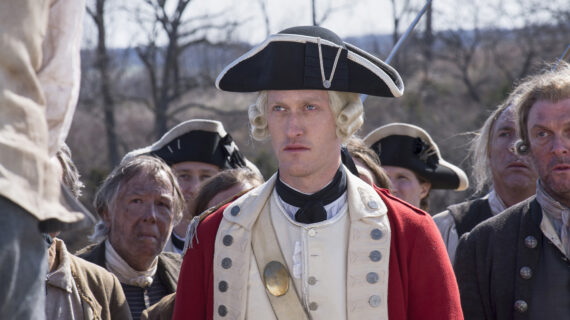
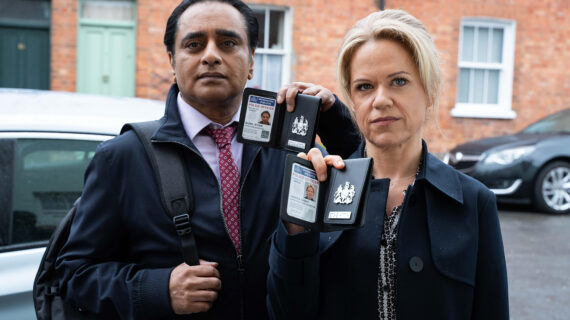
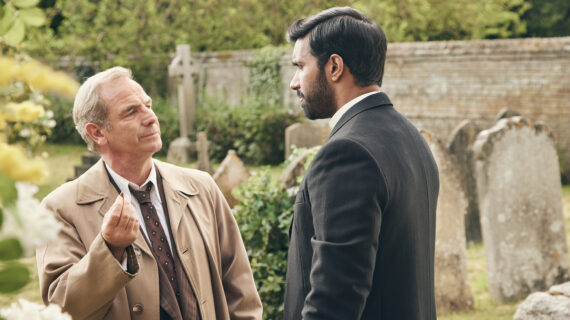
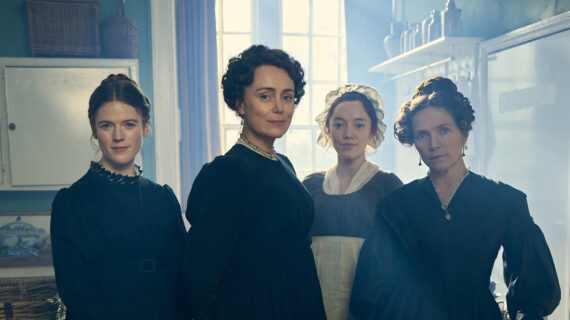

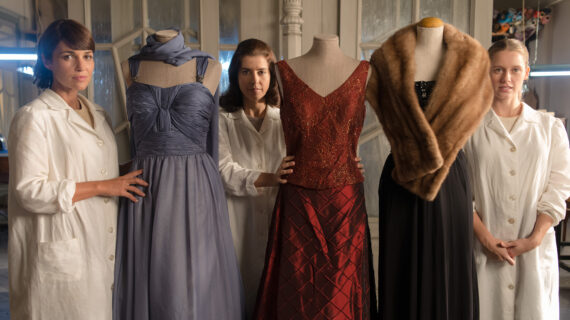
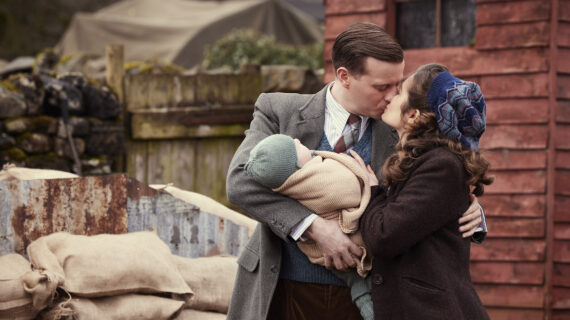

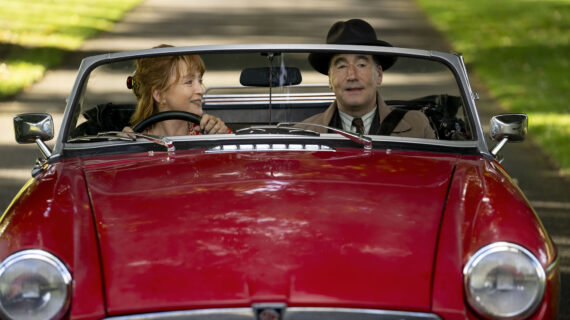
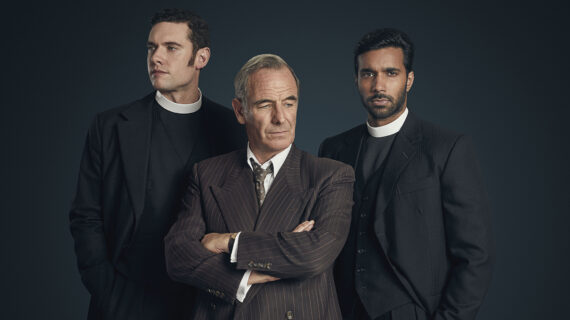
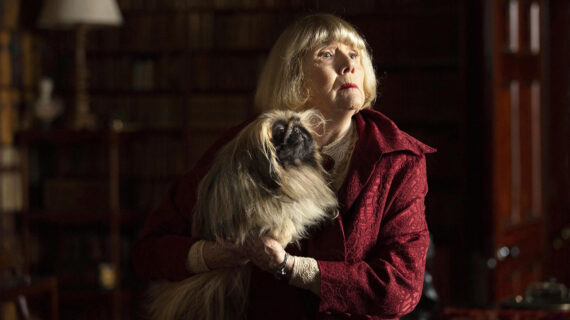

Follow Us